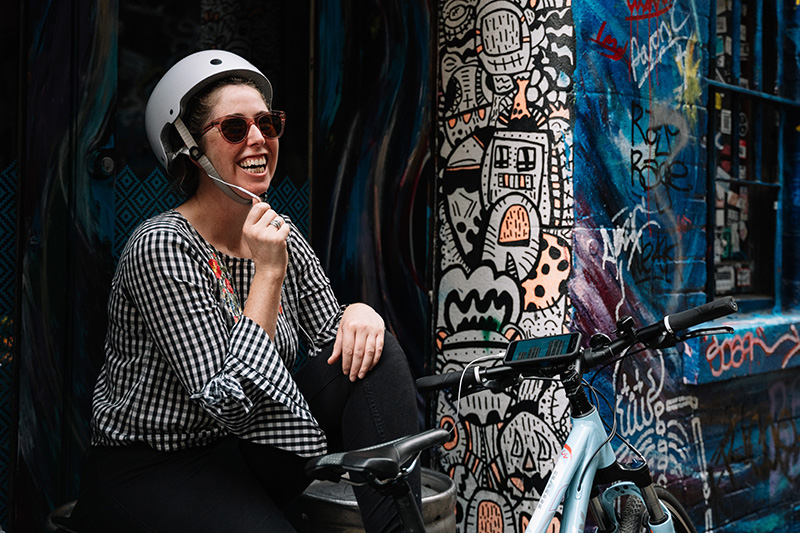
Rider Spoke, Melbourne 2022, photo credit: Phoebe Powell
Rider Spoke is a project that invites you to cycle alone through the city with a smartphone attached to your handlebars. Guided by the voice of a narrator, you are asked questions about your life and then search for a place to record your answer to each one. As you cycle, you choose whether to answer another question or listen to the answers left by other cyclists.
Conceived by Blast Theory in 2007 as a response to the emergence of user-generated content, the project facilitates contributions from its audiences that are open, intimate and reflective. After taking part, audiences commonly report a feeling of recognition in the recordings they listen to, and a renewed sense of belonging to the city and its people.
The project has toured to 30 cities around the world with about twenty-five thousand audience recordings being made in that time. As such, it offers a unique opportunity to study how sharing personal stories can contribute to social cohesion and explore the potential that machine learning and large language models might play in this context.
What new insights about the stories shared within Rider Spoke can these technologies produce? And how might these technologies be used by artists and designers of mixed reality experiences to support social cohesion?
I will combine linguistic and machine learning approaches to study the stories and data saved in Rider Spoke recordings. And - informed by insights from this study - I will design a series of novel public prototypes that test potential roles for AI in supporting social cohesion on new platforms, and in new contexts.
This author is supported by the Horizon Centre for Doctoral Training at the University of Nottingham (UKRI Grant No. EP/S023305/1).